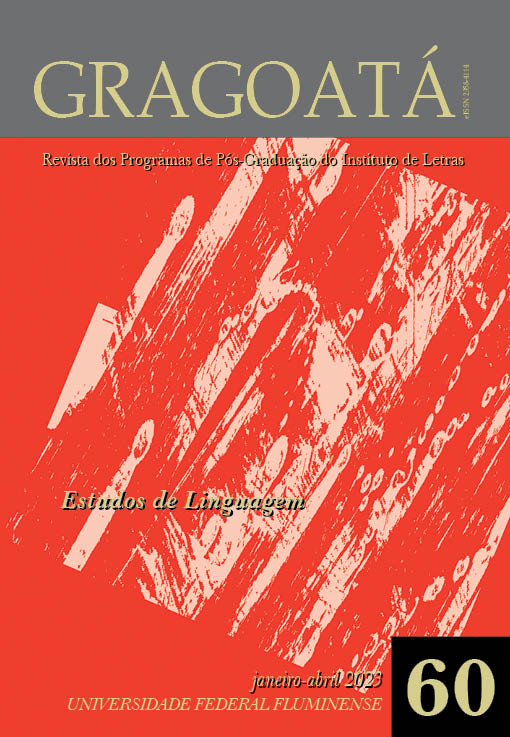O debate sobre a pronúncia padrão brasileira nos preparativos para o II Congresso da Língua Nacional Falada e Cantada (1945-1952)
DOI:
https://doi.org/10.22409/gragoata.v28i60.56416Palavras-chave:
língua nacional. padronização linguística. glotopolítica. radiodifusão.Resumo
Em 1945, com o fim do Estado Novo, um grupo de intelectuais decidiu retomar o projeto de padronização da pronúncia proposto por Mário de Andrade e discutido no Primeiro Congresso da Língua Nacional Cantada (1937). A iniciativa coube inicialmente à Secretaria Geral de Educação e Cultura do Distrito Federal, que não conseguiu levá-la adiante, e acabou incorporada aos planos do Centro de Pesquisa da Casa de Rui Barbosa. Este trabalho investiga os preparativos para o II Congresso da Língua Nacional Falada e Cantada, examinando sua repercussão na imprensa, sobretudo as declarações de membros da Comissão Organizadora do evento, e as reações de articulistas nos jornais. A investigação esclarece como o evento foi organizado, por que não aconteceu e quais eram suas motivações, abordando a perspectiva dos organizadores quanto à padronização da pronúncia como um projeto glotopolítico (GUESPIN; MARCELLESI, 2021; ARNOUX, 2016).
Downloads
Downloads
Publicado
Licença
Copyright (c) 2023 Gragoatá

Este trabalho está licenciado sob uma licença Creative Commons Attribution 4.0 International License.
AUTORIZAÇÃO
Autores que publicam em Gragoatá concordam com os seguintes termos:
Os autores mantêm os direitos e cedem à revista o direito à primeira publicação, simultaneamente submetido a uma licença Creative Commons Atribuição 4.0 Internacional (CC BY 4.0), que permite o compartilhamento por terceiros com a devida menção ao autor e à primeira publicação pela Gragoatá.
Os autores podem entrar em acordos contratuais adicionais e separados para a distribuição não exclusiva da versão publicada da obra (por exemplo, postá-la em um repositório institucional ou publicá-la em um livro), com o reconhecimento de sua publicação inicial na Gragoatá.
A Gragoatá utiliza uma Licença Creative Commons - Atribuição CC BY 4.0 Internacional.











